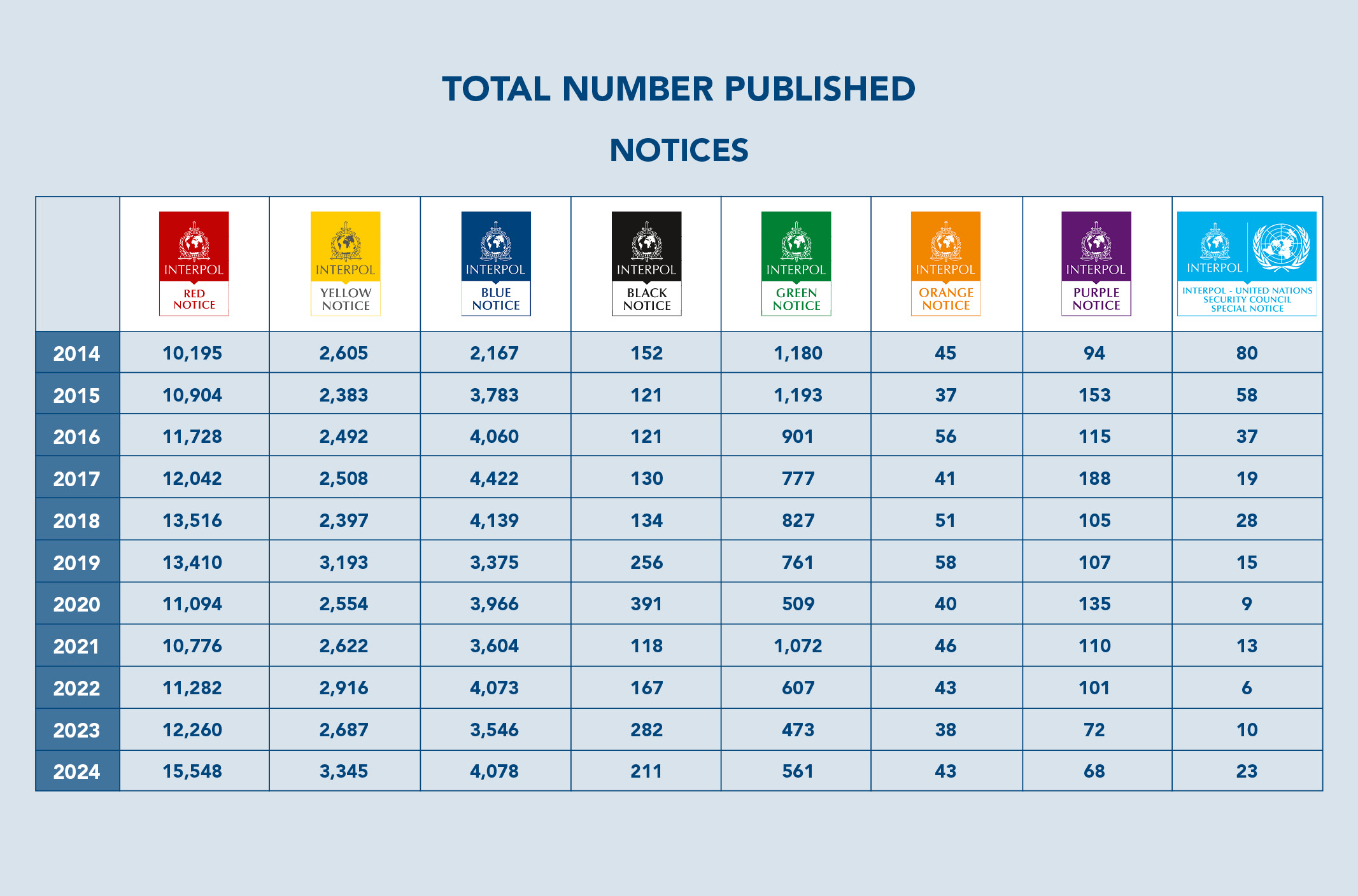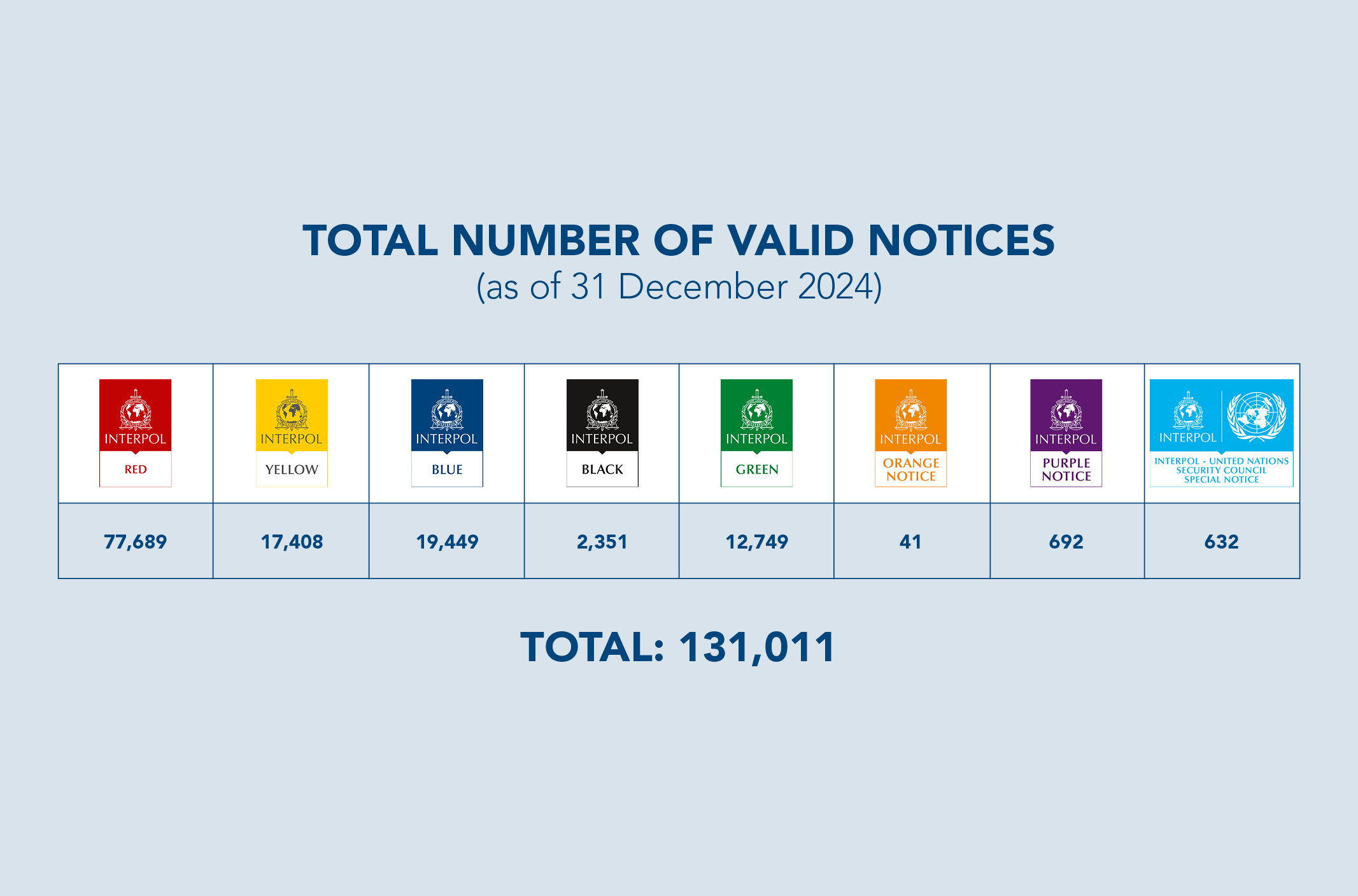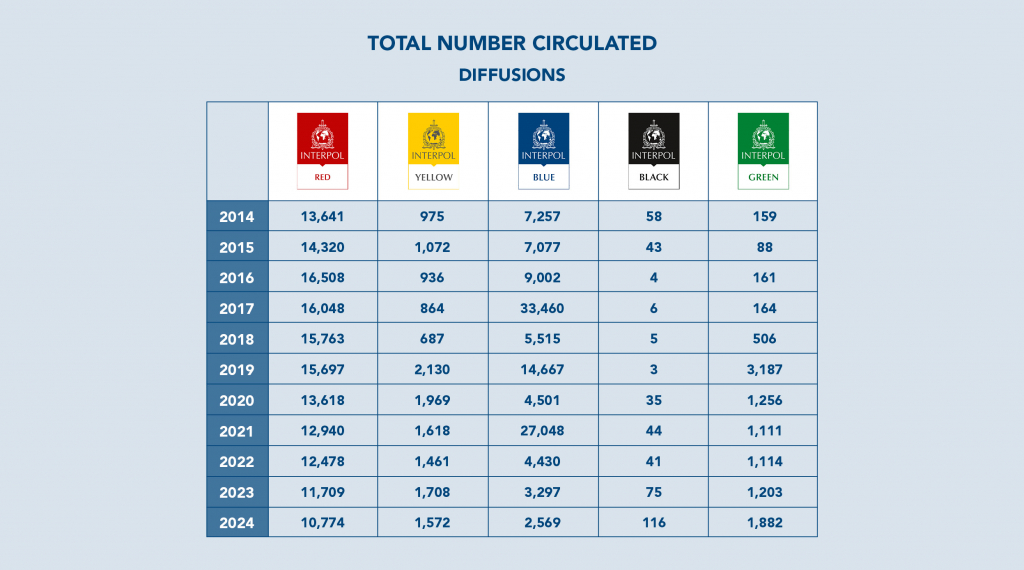INTERPOL Notices are international requests for cooperation or alerts allowing police in member countries to share critical crime-related information.
Notices are issued by the General Secretariat at the request of a member country’s INTERPOL National Central Bureau and are made available for all our member countries to consult in our Notices database.
Notices can also be issued at the request of International Criminal Tribunals and the International Criminal Court to seek persons wanted for committing crimes within their jurisdiction, notably genocide, war crimes, and crimes against humanity. They can also be issued at the request of the United Nations in relation to the implementation of sanctions imposed by the Security Council.
Most Notices are for police use only and are not available to the public. However, an extract of the Notice can be published on this site if the requesting country wishes to alert the public or seek their help. All United Nations Special Notices are public.

Types of Notice
Red Notice: To seek the location and arrest of persons wanted for prosecution or to serve a sentence.
Yellow Notice: To help locate missing persons, often minors, or to help identify persons who are unable to identify themselves.
Blue Notice: To collect additional information about a person’s identity, location or activities in relation to a criminal investigation.
Black Notice: To seek information on unidentified bodies.
Green Notice: To provide warning about a person’s criminal activities, where the person is considered to be a possible threat to public safety.
Orange Notice: To warn of an event, a person, an object or a process representing a serious and imminent threat to public safety.
Purple Notice: To seek or provide information on modus operandi, objects, devices and concealment methods used by criminals.
Silver Notice (pilot phase): To identify and trace criminal assets
INTERPOL–United Nations Security Council Special Notice: Issued for entities and individuals who are the targets of UN Security Council Sanctions Committees.

Notices must meet legal criteria
A Notice is published only if it complies with INTERPOL’s Constitution and fulfils all conditions for processing the information in accordance with our Rules on the Processing of Data. This ensures the legality and quality of information, and the protection of personal data.
For example, a Notice will not be published if it violates Article 3 of INTERPOL’s Constitution, which forbids the Organization from undertaking any intervention or activities of a political, military, religious or racial character.
Requests for notices are reviewed for compliance with INTERPOL’s rules by our Notices and Diffusions Task Force; this is a specialized multilingual and multidisciplinary task force comprising lawyers, police officers and operational specialists.

Diffusions
Member countries may also request cooperation from each other through another mechanism known as a 'diffusion'. Diffusions are circulated directly by a member country’s National Central Bureau to all or some other member countries.
Diffusions correspond to the Notices colour-coded system, so there are red, yellow, blue, black, green, purple and orange diffusions, and they must comply with INTERPOL’s Constitution and the Rules on the Processing of Data.
Wanted persons (red) diffusions – those circulated to arrest, detain, or restrict the movement of a convicted or accused person – are checked for compliance by the Notices and Diffusions Task Force.
A diffusion will not be entered into in INTERPOL’s database if it is of political, military, religious or racial character in violation of Article 3 of INTERPOL’s Constitution.

Related documents



Related news

UK woman murdered in Belgium identified after international appeal
14 November 2023
International appeal to identify dead child in Germany
29 August 2023





